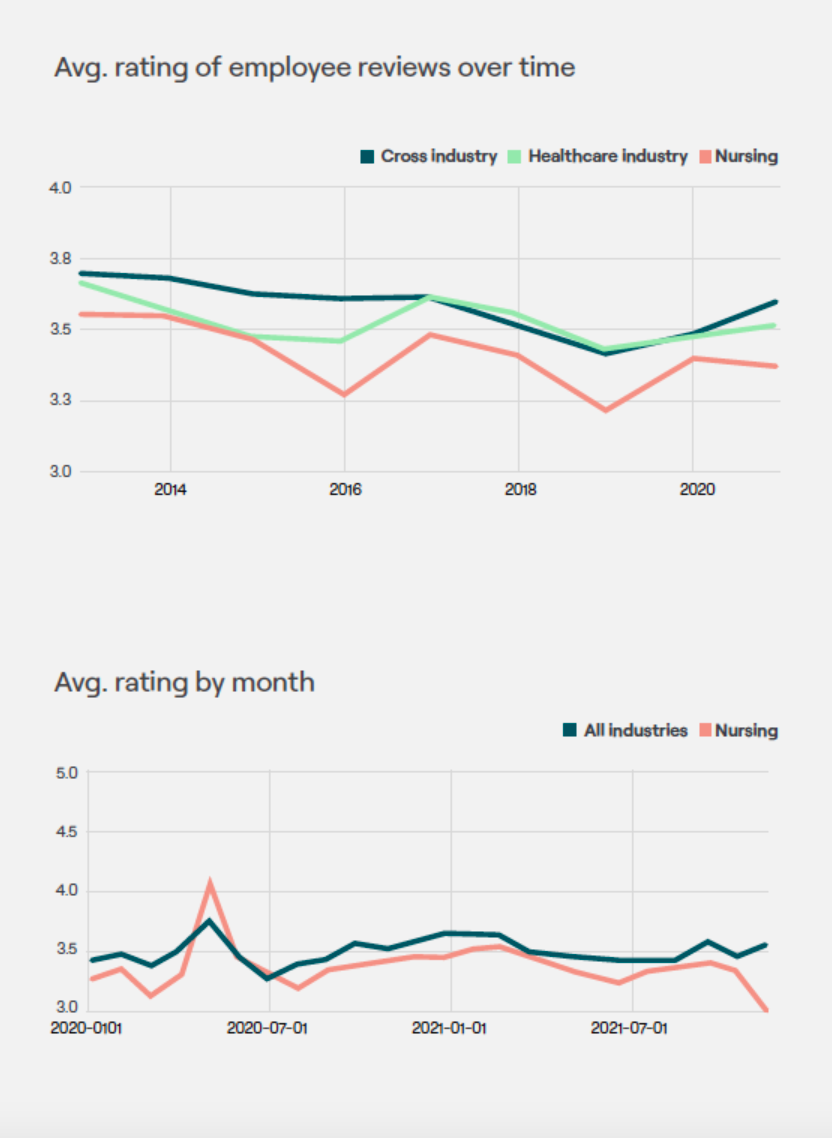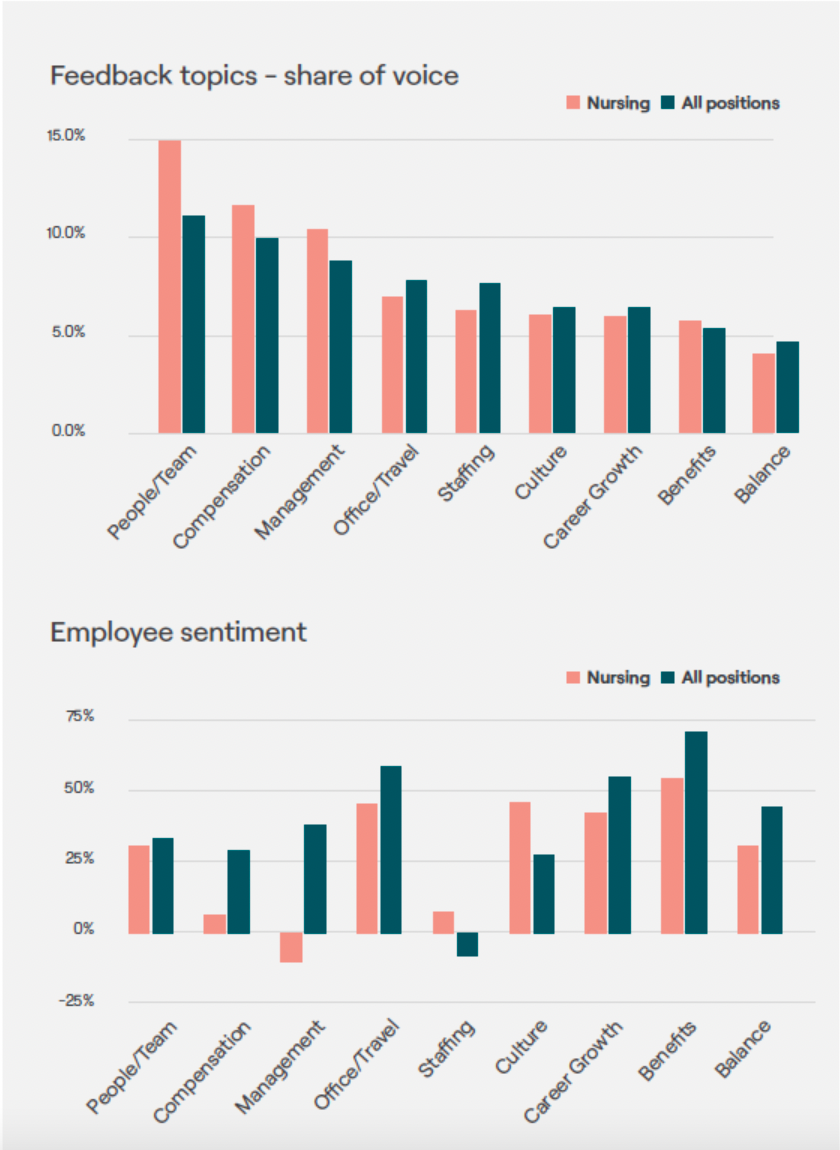The Great Resignation is affecting all industries and healthcare is no exception. According to a Washington Post/Kaiser Foundation poll, 55% of front-line healthcare workers have experienced workplace burnout from stress. For providers aged 18-29, that figure is 69%. The reasons for the distress include working extra-long hours, witnessing suffering from Covid-19, and adapting to safety protocols that change constantly. As a result, one in five providers is considering quitting their job – and for nurses in particular, the percentage is even higher at 30%. We wanted to understand healthcare employee sentiment better. So, we analyzed 1 million online reviews by employees and compared their sentiment to other industries as follows:

We found that:
- Sentiment for healthcare as a whole is lower than other industries.
- Feedback from nurses has always been more negative and continues to be.
We took a closer look at sentiment from nurses in particular especially because of their traditionally more negative sentiment compared to other providers and staff. Their workload is grueling, they experience the emotional toll of caring for people who are sick and dying, and they feel underappreciated by physicians, as well as undercompensated by management. The pandemic has elevated all those concerns. Nurses have often been the ones literally at patients’ besides when they die. They’ve had to quickly pivot from working in operating rooms and intensive care to coronavirus units. In some cases, they’ve had to cross state lines to operate in unfamiliar healthcare systems amid staffing shortages. They’ve typically lacked mental health support amid the stress. Related: How Google Business Profiles Influence the Patient Journey
Employee Sentiment from Nurses
Here's what we found when we looked at feedback from nurses:

The three topics that matter the most to nurses: people around them, compensation, and management. This mirrors the rest of the U.S. workforce. But the nurses in the data set we studied were much more disgruntled about compensation and management. This kind of feedback was typical:
- “No work life balance, employees want to come to work to get paid but not do any work. Some supervisors have no leadership skill set, low pay for work, no incentive for employees, no appreciation for employees, cheap.”
- “The day-to-day working people are awesome and have the patient's best interest in mind. The administration does not seem to have a big-picture viewpoint of primary care.”
- “Very stressful & no management support. ALWAYS short-staffed. It was hard work, but all management [cares] about is money.”
- “Management does not care for their nursing staff, as shown by poor communication.”
On the other hand, it was not uncommon for the more positive feedback to mention a sense of teamwork and collaboration:
- “Good teamwork, sense of belonging, and ongoing skills obtained but high turn-over rate.”
- “Overall, it is [a] good company to work for with a great, cohesive team.”
It’s not just that nurses feel undercompensated. They also sense a disparity between their compensation and management’s. Showing more empathy would go a long way toward improving sentiment. Empathy that comes from showing more interest in what it’s like to be a nurse. Empathy in the way management communicates with nurses. A recently published McKinsey report, “Nurses and the Great Attrition,” echoes our own findings. A McKinsey survey found that more than 30% of nurses are thinking of leaving direct patient care. In a podcast discussing the findings, McKinsey senior partner Gretchen Berlin said that although compensation is a factor for why nurses are leaving healthcare, “ . . . at the end of the day, a lot of it comes down to the support and recognition that they feel in their workplace, from their leaders, their managers, their team, and through ensuring there’s sufficient staffing, sufficient respite, and gratitude.” Related: How to Fight Healthcare Worker Burnout We urge healthcare providers to put in place more systematic programs for monitoring the voice of the employee. Just as they should listen to patients and learn from feedback, so should they with employees, including, of course, nurses. This is best done through an employee experience program. An employee experience program is a comprehensive and proactive approach to improving retention by constantly gauging the pulse of employees, listening to feedback, and improving the overall experience. That experience includes compensation, but also many other elements that contribute to a positive environment. This program needs to extend to providers and staff. Read the 2022 Healthcare Reputation Report The voice of the employee is one of the topics we cover in our 2022 Healthcare Reputation Report. Based on an analysis of 2.8 million patient reviews across 179,000+ physician and hospital locations, we’ve ranked the 15 largest healthcare systems.






